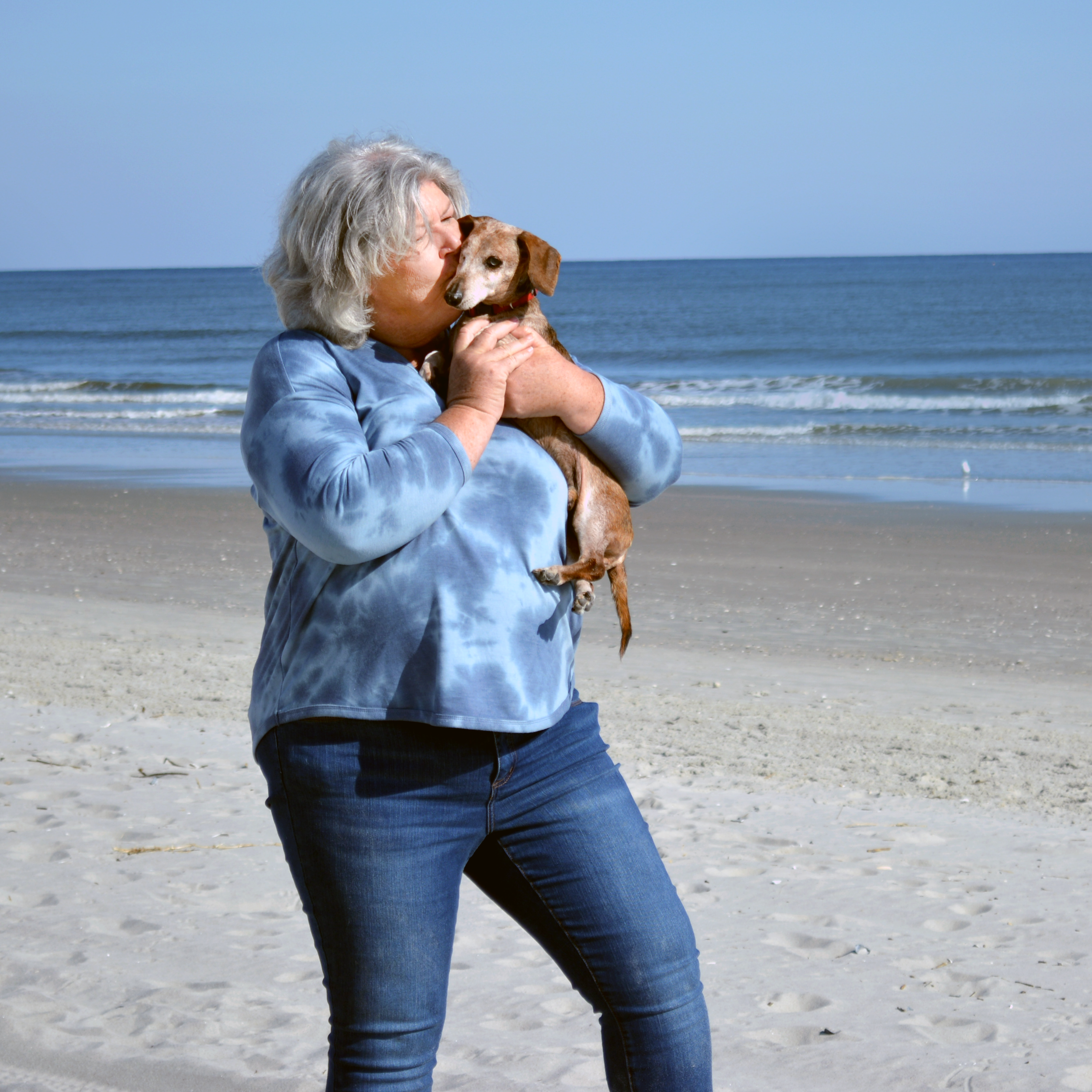Navigating Canine Cognitive Dysfunction
Understanding, Coping, and Caring for Your Aging Dog
Howie was over 20 years old!
Canine Cognitive Dysfunction (CCD), often referred to as doggy dementia or senility, is a neurodegenerative disorder that affects aging dogs. Similar to Alzheimer's disease in humans, CCD involves the deterioration of cognitive functions, resulting in behavioral and cognitive changes. It's relatively common in senior dogs, typically occurring in dogs aged 8 years and older. CCD is a progressive condition, meaning its symptoms tend to worsen over time.
Aging is the main risk factor for CCD with 28% of dogs in the 11–to-12-year-old range, and 68% in dogs 15 years old and higher showing signs of CCD.
Be sure to consult with your vet for a formal diagnosis and to ensure there is nothing else going on with the dog’s neurological system. Then you and I can work together collaborative along side your vet to include natural options to support your dog’s well-being.
Symptoms of Canine Cognitive Dysfunction (CCD)
Disorientation and Confusion
Gets lost in familiar surroundings
Stares off into space
Has difficulty moving around familiar spaces
Experiences “sundowning” — becoming more confused toward the end of the day
Appears confused or easily startled
Has trouble locating dropped food
Memory and Learning Decline
Loss of housebreaking skills
Forgetting previously learned commands or cues
Loss of recognition of familiar people or pets
Sleep and Wake Cycle Changes
Altered sleep/wake cycles
Sleeping more during the day and becoming restless or active at night
Behavior and Mood Changes
Increased anxiety or restlessness
Pacing or repetitive movements
Becomes more withdrawn or less interested in family and surroundings
Diminished interaction with people or other pets
Displays signs of apparent hearing loss (not responding to name, commands, or sounds)
Vocalization
Barking, whining, or howling for no apparent reason
Excessive vocalization, especially at night
Toileting Issues
Loss of house training
Inappropriate elimination indoors
Changes in Appetite
Lack of interest in food
Difficulty eating (may need food warmed, softened, or changed in texture from raw to cooked)
Consider adding Lion’s Mane Mushrooms as part of your dog’s cognitive support protocol — this functional mushroom is known to support nerve regeneration and brain health. https://welloiledk9.com/products (see Myco Dogs or Real Mushrooms)
Reduce The Risk of Canine Cognitive Dysfunction:
While there is no guaranteed way to prevent CCD, there are some steps you can take to potentially delay its onset or slow its progression:
Healthy Diet: Providing a well-balanced, fresh food diet, with antioxidants and Omega-3 fatty acids.
Physical and Mental Stimulation: Regular exercise and mental enrichment, such as puzzle toys and training, can help keep your dog's mind active.
Regular Veterinary Check-ups: Regular visits to the vet allow early detection of any health issues, including cognitive decline, which might prompt intervention strategies.
Medication and Supplements: Some medications and supplements, like those containing antioxidants or cognitive enhancers, may be recommended by your pet heath coach to support cognitive function. Essential Oils can also be beneficial.
Caring for Senior Dogs with CCD:
Caring for a senior dog with CCD requires patience, understanding, and adjustments to their environment:
Establish a Routine: Maintain a consistent daily routine to reduce confusion and anxiety.
Enrichment: Provide mentally stimulating activities to keep their mind engaged, such as interactive toys and short training sessions.
Safe Environment: Remove hazards or obstacles that might confuse or endanger your dog.
Medications and Supplements:
CBD - CBD Dog Health Ease
Omega 3 — increased levels
Functional Mushrooms — Myco Dog Clarity, Real Mushrooms Lion’s Mane.
FMT is now being explored for it’s benefits on cognitive health! It’s worth a try!
Comfort and Support: Offer your dog comfort through gentle petting, soothing tones, and spending quality time together. Consider PEMF Therapies.
Veterinary Care: Regular visits to the vet to monitor blood work and adjust their care plan as needed.
Maintain Physical Health: Keep up with regular exercise and provide a balanced diet to support overall well-being.
It's important to remember that CCD is a medical condition, and if you suspect your dog is experiencing cognitive decline, it's best to consult a veterinarian. They can provide a proper diagnosis, offer guidance on managing the condition, and recommend appropriate treatments or interventions.
Ask me for my guide to CCD Support available exclusively to my clients and forum members.

